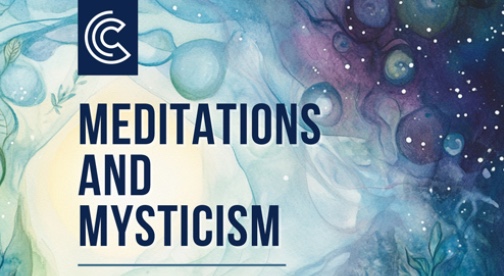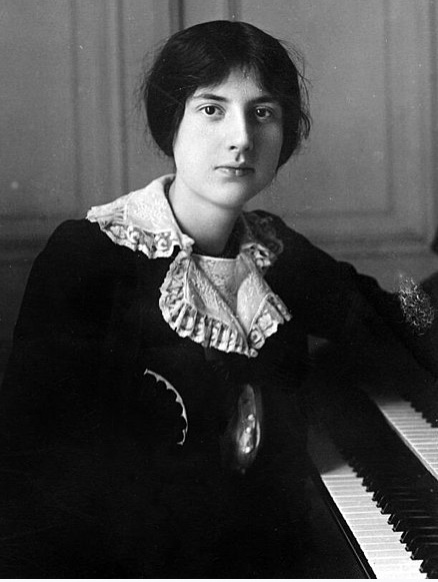by Mike Telin

On Saturday, October 26 at 7:00 pm at Trinity Cathedral, Ristow will lead the Cleveland Chamber Choir in “Meditations and Mysticism.” The program celebrates the healing power of music. The concert, presented in partnership with the award-winning mental health program, Ghetto Therapy, will launch the ensemble’s tenth anniversary season.
The program will be repeated on Sunday at 4:00 pm at First Lutheran Church in Lorain. Oberlin College & Conservatory Professor Charles Edward McGuire will present a pre-concert talk 45 minutes prior to each performance. Click here to register for a “pay what you will” ticket.
Although Ristow has been thinking about the program’s musical side for at least two years, the emotional and spiritual side has been with him much longer. “Growing up, my family went to Presbyterian church services, but we also went to Hindu services. So as a child I was surrounded by the idea of meditation — sitting in silence to find one’s own place and to feel oneself among the broader world.”
Given the subject, it’s fitting that music by Hildegard von Bingen will open the program. “O virtus sapiente is one of her more famous chants,” Ristow said. “From what we know of her, she would sit and feel musical and mystical revelations come to her, which then became her music. So her music quite literally came from this place of — if I find a still, quiet place, what do I hear? Then can I channel that into something that everyone can hear?”

Ristow noted that improvisation is a central part of the Carnatic vocal tradition. “A lot of what our vocalist Lalit Subramanian will be singing is improvised, but everything the choir will perform is notated, although at times the rhythm is quite free. What I love about the piece is that it brings together two musical worlds of contemplation. It’s unlike anything I’ve ever performed.”
Although Benjamin Britten’s “Festival Cantata,” Rejoice in the Lamb, may be the most well-known piece on the program, it was also chosen because of its text. In his long poem, Jubilate Agno, Christopher Smart talks about how all the animals and all things of the world are a reflection of divine energy.
“There is one moment in the piece that is one of the most magical moments in Western music,” Ristow said. “Every now and then a composer will try to create a sense of timelessness within a rhythmic system, and there’s this incredible section where the text is
…for at that time malignity ceases, and the devils themselves are at rest. For this time is perceptible to man through a remarkable stillness and serenity of soul.
“Then it goes into one of the most beautiful Alleluias, which on the paper looks like a classic dotted rhythm, but Britten writes a note saying it should be a little out of time. When you listen to it you’re aware there’s a rhythm, but it also exists in a time beyond time.”
Pauline Oliveros’ Sonic Meditations exist between composition and meditation and are meant to be experienced with a group of people, not necessarily trained musicians. “They’re about opening up one’s mind and listening with more than one’s ears — gaining an awareness of the music in the world, the music in life, and how we create, respond to, and sense that,” Ristow said, adding that the piece will not be sung as a performance, but as a meditation with the audience.
“The first time I did them was rather terrifying — I was thinking, am I right? Am I doing the right thing? Of course, that’s not the point at all — the point is to just listen, feel, and respond. It’s a beautiful thing to enter into that space.”
Meredith Monk’s “The Earth Seen from Above” from her opera Atlas is an untexted work. “The text is literally a sustained letter like N and O that moves among the singers. It’s just gorgeous and completely captivating.”
J.S. Bach’s “Dona Nobis Pacem” (grant us peace), from the composer’s B-Minor Mass is a piece that Ristow said is musically perfect. “The text speaks exactly to our goal with this concert which is meant to channel peace into the world.”

In his program note, Charles McGuire writes: Missy Mazzoli’s The Shield of the Heart sets a text by Farnoosh Fathi which is not traditional, but rather a collection of neutral syllables. First, a single voice yodels using vowel sounds, and is then joined by other members of the choir singing on “mm” and “ah” over slowly-shifting chords.
Philip Glass’s “Knee Play 5” is the closing scene from his opera Einstein on the Beach and instructs the choir to solfège the names of the notes. “There’s some spoken text on top of it as well, including a lovely extended speaking solo for Dominic Aragon, who has a special connection to Einstein.”
Reena Esmail’s Take What You Need is meant for community performance. “So Emily Capece, one of our singers who also directs the Oberlin Choristers will teach us the audience part of it.”
Ristow said that its text defines the program — take a moment, take a breath, take what you need. “I started planning this program two years ago, but now feels like a really important moment for us all to just practice finding our breathing, finding our centering again.”
Published on ClevelandClassical.com October 24, 2024
Click here for a printable copy of this article



